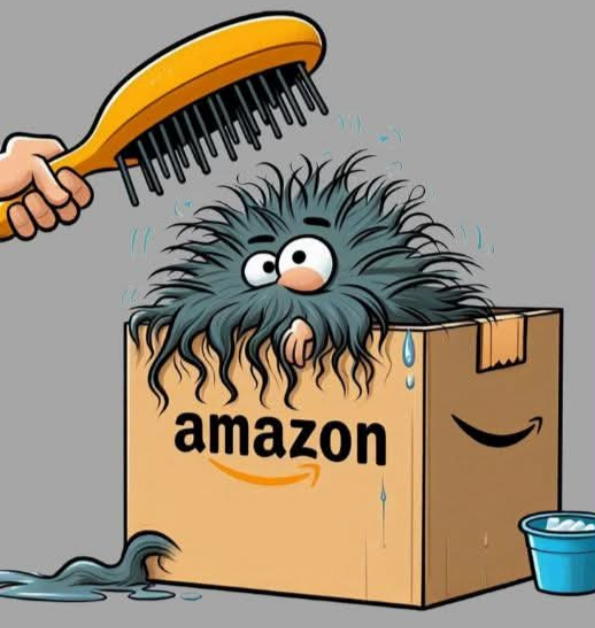 Earlier today I came across a post on social media where a woman described how she received a package out of the blue. The box contained generic parts for a Roomba. She had never ordered them. When she contacted the delivery company, they told her she was not alone. Others had reported the same strange deliveries.
Earlier today I came across a post on social media where a woman described how she received a package out of the blue. The box contained generic parts for a Roomba. She had never ordered them. When she contacted the delivery company, they told her she was not alone. Others had reported the same strange deliveries.
At first glance, it might look harmless. Free parts, no bill, no strings attached. But that is where the danger lies.
🖌️ THE “BRUSHING SCAM” EXPLAINED
What many people do not realize is that these random deliveries are usually part of a scheme known as a brushing scam.
Online sellers, often operating through global platforms such as Amazon, Temu, eBay, or Walmart, send low-value items to unsuspecting people. Their goal is not to give away freebies but to generate fake “verified” reviews. Because the package is delivered to a real address, the seller can claim a legitimate sale and then post glowing feedback about their own product, under the name of the person receiving the items, much in the same way many companies provide a review boosting service for Google Reviews, this scam is designed to manipulate the review system. So it does not matter if they ship you faulty or fake items, all that matters is an item was shipped and the review business "ordering" the item can now write a glowing review.
The recipient never asked for the items. The seller never needed their permission. Yet the scammer now has “proof” that someone in Canada, the United States, or elsewhere bought and received the item.
😟 WHY THIS SHOULD CONCERN YOU
Even if you never lose money, the bigger issue is privacy and security.
- These companies somehow obtained your name and address, which means your personal information is circulating in marketing or scammer databases.
- While this may not directly affect the receiver, at the time, Brushing results in thousands of fake glowing reviews online, which is why it is important to not only look at online reviews but also to examine other reviews made by the same person; the reviewer could very well be part of a review boosting service.
- Some packages can lead to secondary scams, such as claims that you need to pay for the shipment or return it.
- If the package includes a QR code, be especially cautious. Scammers sometimes plant them as part of a tactic called quishing. A quick scan could send you to a fake website that harvests personal data or installs malware on your phone.
- More worrying, it opens the door to identity misuse. If your shipping details are available, what other pieces of information might already be out there.
❓ WHAT TO DO IF IT HAPPENS TO YOU
- Do not pay anything. In most countries, unsolicited packages are legally considered a gift.
- Do not consume, install, or scan items such as food, supplements, electronics, or QR codes. Their origin is often unknown.
- Monitor your financial accounts. Although brushing scams usually do not involve stolen credit cards, it is wise to watch for unusual activity.
- Report the incident to your local fraud agency.
These “free” deliveries are not acts of generosity. They are part of a larger system that manipulates online trust while quietly exploiting your personal information. The woman who received Roomba parts did not just get an unwanted package. She became a pawn in a seller’s game to cheat online reviews.
It is not only obscure marketplaces. These packages have been reported coming from many different vendors including Amazon and Temu. This shows how widespread and slippery the problem really is.
The best defense is awareness. If you or someone you know receives a mystery parcel, do not brush it off. Recognize it for what it is: a scam hiding in plain sight, and one that may evolve into more dangerous tactics such as Quishing.
- Log in to post comments
